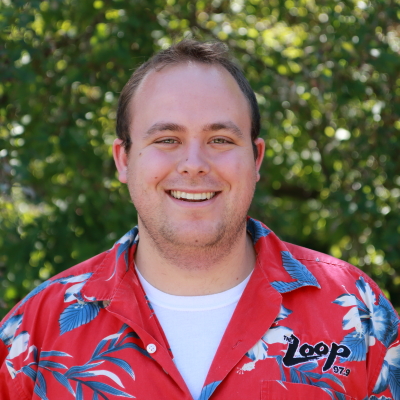About Me#
I work as an Atmospheric Data Scientist at Argonne National Laboratory, where I contribute to tools and infrastructure to enable open science.
What I do#
Open Source and Open Science
I work on projects that make analyzing large atmospheric/climate datasets easier, and ensure folks have an inclusive community around the tools to support robust communities of practice.
I contribute to a few open-source projects that support the weather/climate community. In particular I am a core contributor to many projects in the Pangeo ecosystem, and in particular the following major projects:
Python ARM Radar Toolkit (Py-ART) - a Python library containing a collection of weather radar algorithms and utilities.
xradar - includes all the tools to get your bring weather radar data in the pangeo ecosystem.
intake-esm - a data cataloging utility built on top of intake, pandas, and xarray, and it’s pretty awesome!
The Open Radar Forum - a place for the weather radar community to come together.
For an idea of the kinds of projects that I work on, check out my GitHub page
Outreach and Community Involvment
I regularly teach short-courses at academic meetings, including the American Meteorological Society (AMS)Meetings (Radar and Annual), European Conference on Radar in Meteorology and Hydrology, as well as smaller workshops and webinars.
I am also involved as a member of the AMS Board on Environmental Information Processing Technologies, as well as co-chair for the Earth, Ocean, Geo, and Atmospheric Science track at the annual scientific python conference.
For a list of publications and scholarly artifacts (such as datasets) in which I’ve been involved, check out my ORCID page or my Google Scholar page.
CV#
In a more CV/resume style, here is more information about my background:
Education#
B.S. in Meteorology, Valparaiso University, 2019
M.S. in Atmospheric Science, University of Illinois Urbana-Champaign, 2021
If you want a download-able CV, you can find a (mostly) up-to-date CV here.
A Timeline#
Here is a brief timeline of my professional journey
2022: Joined Argonne National Laboratory as an Atmospheric Data Scientist
Argonne National Laboratory is a Department Energy Office of Science facility, where I work on projects related to open atmospheric and climate science. Key programs/projects I work on include:
2021: Joined NCAR
After finishing graduate school at the University of Illinois, I began my data science career at the National Center for Atmospheric Research, where I focused on developing open-source tools for the Climate and Global Dynamics laboratory, specifically those working with the Community Earth System Model (CESM). Here are a few of the main things I did during this time:
Kickstarted the Earth System Data Science initiative, writing 52 blog posts for the project.
Co-lead development of intake-esm, a tool used for organizing petabyte-scale climate model datasets.
Hosted office hours for the community to ask pangeo-related questions, building a community of practice around common analysis workflows.
Fall 2019: Started graduate school at the University of Illinois Urbana-Champaign
My scientific training began as an atmospheric scientist, where I studied deep convective storm dynamics in South America. I used observations from the RELAMPAGO-CACTI field campaign, which focused on some of the largest storms on earth, located in the Sierras de Cordoba region of Argentina. In particular I focused on relating observations from space-borne satellites to ground-based radars.
Summer 2019: Interned at Unidata
Unidata (a National Science Foundation funded organization) is a diverse community of education and research institutions with the common goal of sharing geoscience data and the tools to access and visualize that data. During my time there, I spent most of my time adding a METAR parser to MetPy, the go-to python library for working with weather data.
2019 Graduated from Valpo
Graduated from Valparaiso University with a B.S. in Meteorology.
This page is largely based on Chris Holdgraf’s personal website.
